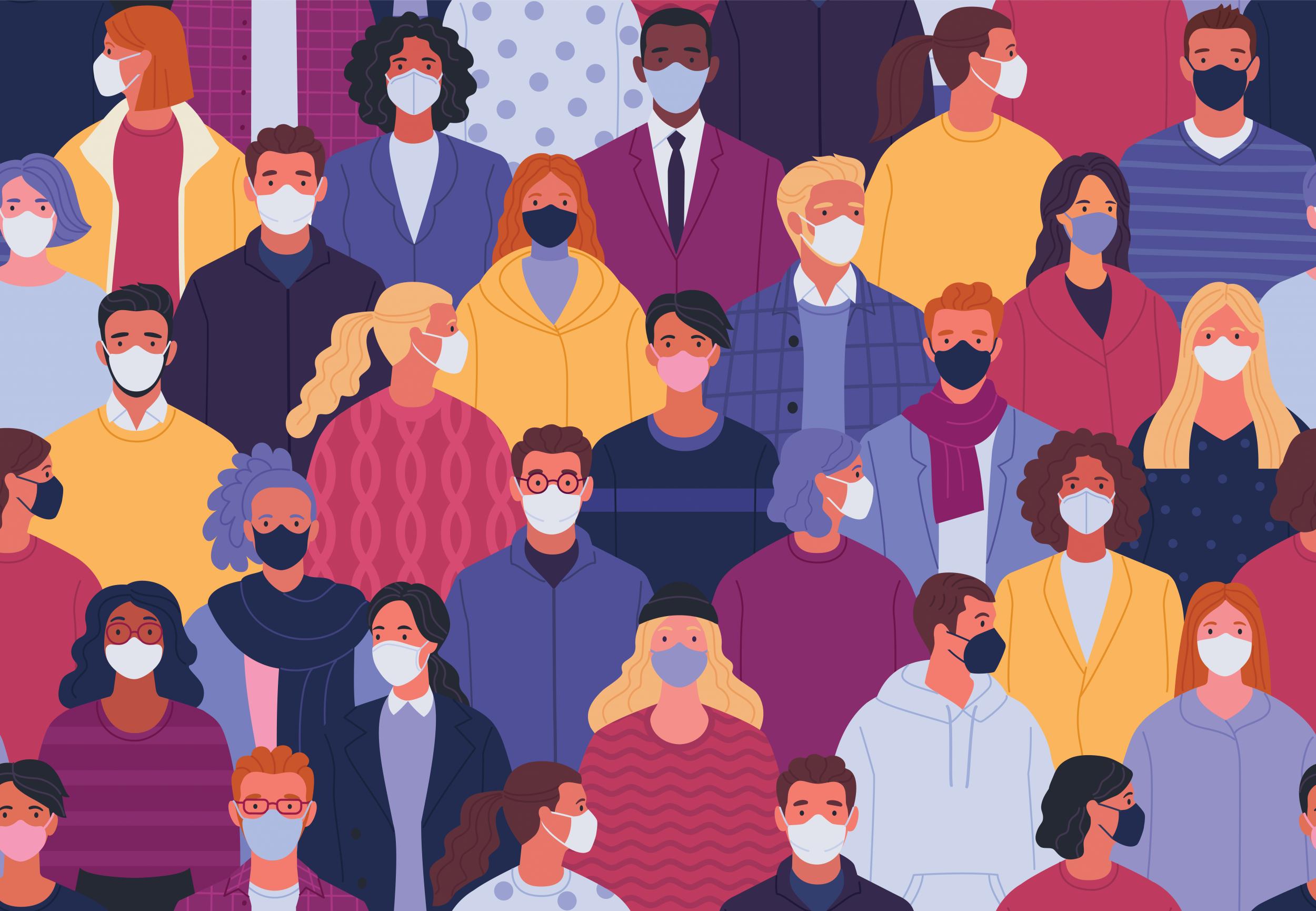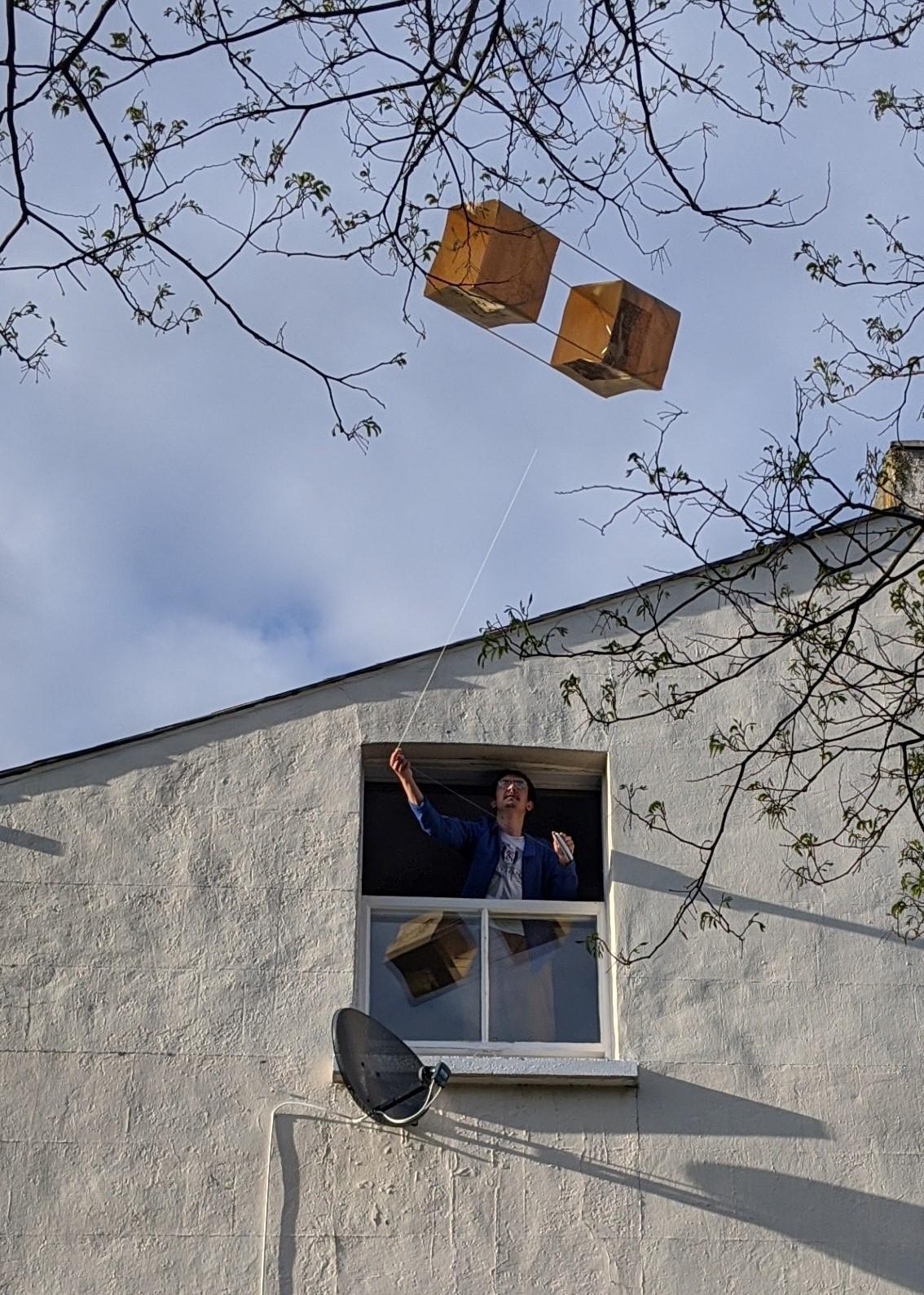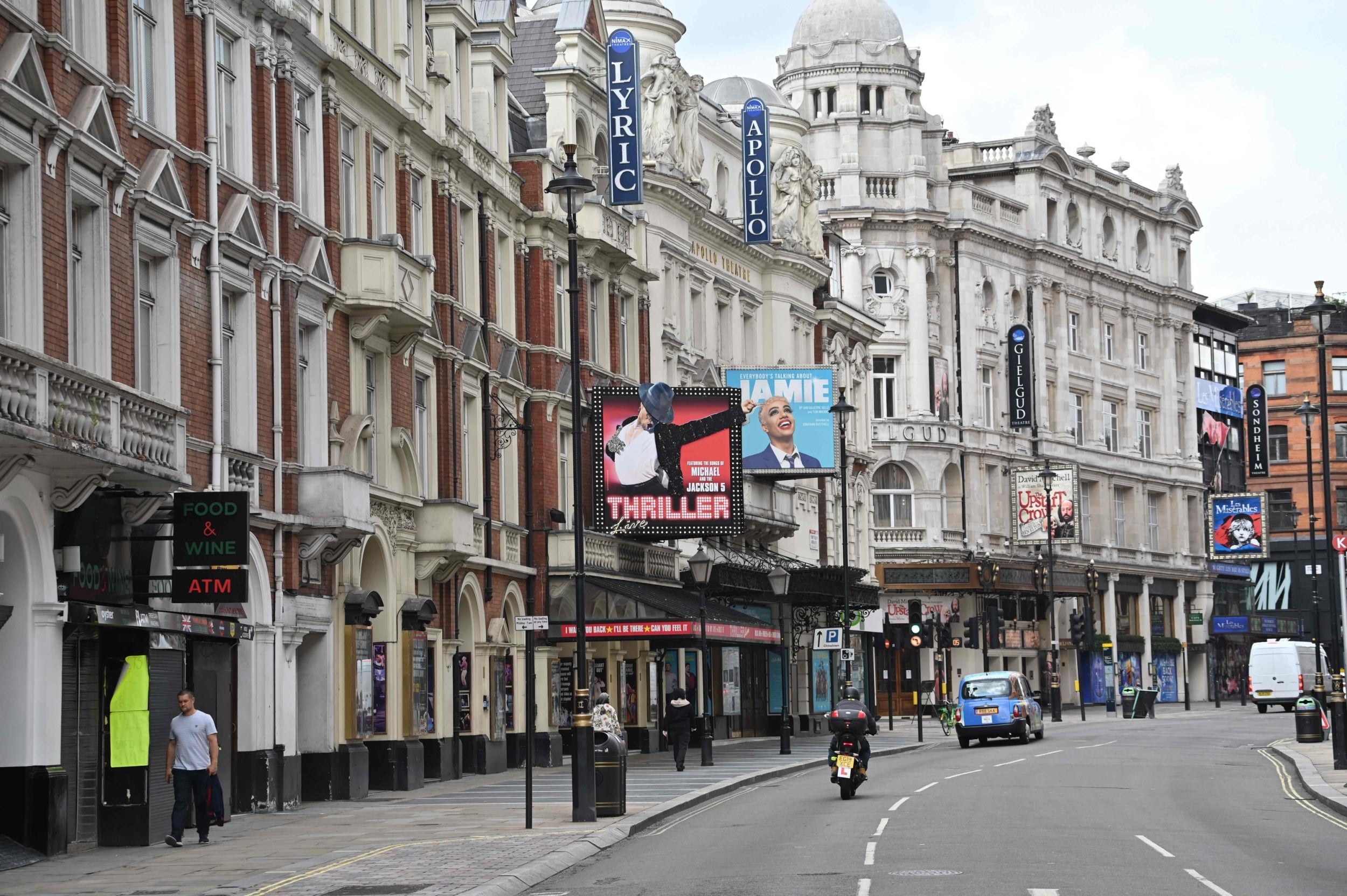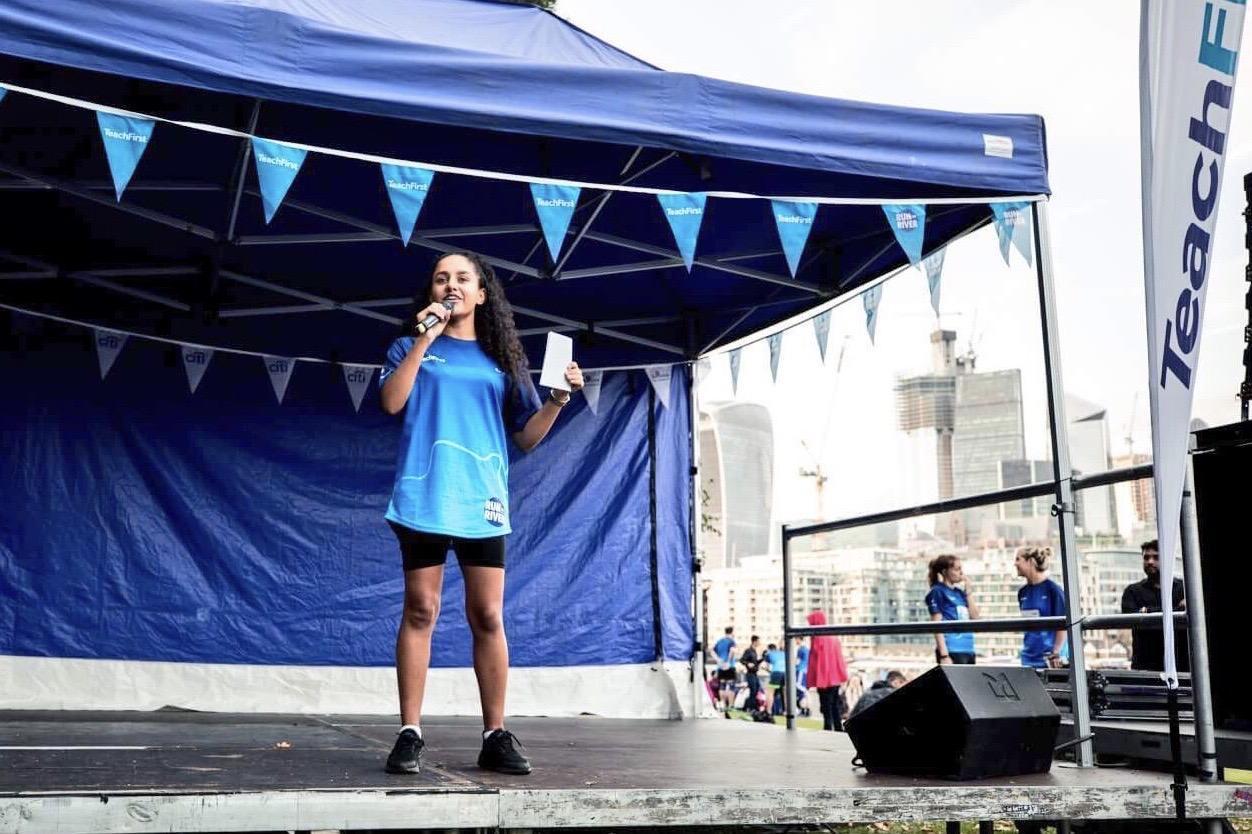The new lost generation: How will Covid-19 change young people’s lives?
In a post-lockdown future, it will be young people who bear the brunt of the economic and social fallout. Jessie Williams speaks to the students, graduates and freelancers finding hope in limbo


Across the country, we are tiptoeing into a new normal. Shops are tentatively reopening; people are returning to work, families are reuniting – albeit at a safe distance. Life is once again filling the silent streets. But life as we knew it will not be the same. Covid-19 and the accompanying lockdown has changed everything.
More than 40,000 people have died from the disease in the UK, and over 400,000 worldwide. The older generation has suffered the most, but as we look to the post-lockdown future, it will be young people who bear the brunt of this pandemic, with longer-term economic and social consequences disproportionately affecting them.
In May, research by the Resolution Foundation found that one-third of 18-24-year-olds have been furloughed or lost their primary job. By contrast, less than 15 per cent of 35-44-year-olds fell into these categories. Additionally, young people are also two and a half times more likely to work in a sector that’s been closed down, such as hospitality and retail, according to the Institute for Fiscal Studies.
Recessions are known to hit young people the hardest, and the one currently looming over our heads is expected to be the worst in 300 years. The Resolution Foundation predicts that youth unemployment could jump by 640,000 this year. Kathleen Henehan, a research and policy analyst at the independent think tank, says this would bring the total number of unemployed 18-24-year-olds to over 1 million. “This is much higher than the peak number of unemployed 18-24-year-olds that we saw during the aftermath of the last crisis, which was 828,000 in August 2011,” she says, adding: “We haven’t seen so many unemployed young people since before the data begins – really since the 1980s.”
These are the people entering adulthood; about to stride into the world of work, or higher education, beginning their independent lives, seeking opportunities and experiences, exploring the world, and carving out their identities. This time is crucial. It will form the foundation of the rest of their lives.
My friends and I fit into this category; recent graduates with our feet on the first step of an extremely precarious career ladder. A WhatsApp discussion with them revealed an array of concerns. But it was Angela Locatelli, 24, our resident voice of reason, who expressed it most succinctly: “It’s just the general sense that our early twenties won’t last forever. We won’t get these months back.” Dating, socialising, travelling – all the things we took for granted before, and now find ourselves unable to do – were topics that came up (we are the Fomo generation after all). Although, that gnawing fear of missing out is less intense when you know that nobody else can do anything as well. Still, top of our list of worries is job insecurity.
Like many young people, my friend Val, 24, has a temporary contract with his workplace and has had his hours reduced because of Covid-19, which is making him feel on edge. “If I am asked to self-isolate, I don’t get paid. If I get sick, I don’t get paid. There’s nothing legally stopping them from cutting my hours completely.” Even when the lockdown ends and jobs start to pick up again, Henehan is doubtful that people will be able to work as many hours as they’d like. “We already know that young people with qualifications are looking for more hours and fixed-term contracts. That will be much more difficult to achieve now than it was in the past.” This will lead to what she calls “pay scarring”, where the level of pay will be lower because they’re less likely to get the calibre of job that they otherwise would have.
It’s the uncertainty of the future that scares Val the most. “My mental health has deteriorated as a result of Covid-19 – not because of the past two months, but the anticipation of what life will be like in the months to come.” Since lockdown began, he has started talking to a therapist over the phone, which he hopes will help.
He is not the only young person whose mental health has taken a hit. A psychological study of 2,000 13-24-year-olds conducted by the University of Sheffield and Ulster University at the end of April found that over 50 per cent of young people are feeling significantly more anxious than they did before the outbreak. Dr Liat Levita, senior lecturer in psychology at the University of Sheffield, led the study and says that while this is an “incredibly challenging period”, young people will experience it in very different ways. “It will depend on people’s circumstances, their family support networks, their friendships,” she says.

Dr Levita explains that it is a natural response to feel anxious. “During a high-risk situation like now, feeling anxious might actually be important; you are adapting and changing your behaviour depending on the current circumstances.” Not everyone’s feeling anxious: she tells me that 40 per cent of young people surveyed said they were enjoying lockdown because it meant spending more time at home with family.
The young people most likely to feel anxious were those whose parents are key workers and those from ethnic minorities. This is no surprise considering people from black, Caribbean and Asian ethnic groups are at a disproportionately higher risk of dying from Covid-19. “That’s significant, because the higher these [anxiety] levels are for a long time, the more likely it is that these young people will be vulnerable to experience that long-term as we step out of this,” says Dr Levita.
In terms of age, the older the young people, the more anxious they felt about the pandemic. That makes sense, she says, as 18-20-year-olds will “experience in a very acute fashion the impact of this, in terms of disruption to education and their futures”.
Natalie Hussey from Swansea said the anxiety hit her in the second week of lockdown. “It was when it started getting warm, that’s when you can start going out to parties and really socialising,” says the 18-year-old. “It felt really claustrophobic; suddenly, my own home felt so much like a prison.” She says she had planned on getting internships this summer, which is now not going to happen and is worried about how this will impact her job prospects.
If I am asked to self-isolate, I don’t get paid. If I get sick, I don’t get paid. There’s nothing legally stopping them from cutting my hours completely
Hussey is currently studying politics, philosophy and economics at The Open University, so she’s used to online teaching, but still needs work experience if she wants to fulfil her ambition of going into the civil service. “If you look at where we will be in the next year, and how uncertain that is, it’s very scary.” Like many people, she’s trying to combat those feelings by staying connected with friends – it’s particularly vital for her as UK Youth’s representative for Wales. Pre-lockdown she would go to her local YMCA and an LGBT+ youth support group, as she’s bisexual. She says it’s been difficult not being able to go there physically. “They’re like home; I’ve been going there for years. I miss that community,” she says.
A lack of safe spaces and limited access to support groups for young people during lockdown is one of the main concerns of UK Youth, a charity that supports and empowers young people from a range of different backgrounds. But Kayleigh Wainwright, head of engagement and advocacy at the charity, is also worried about the long-term financial impact the pandemic will have on youth organisations working at a grassroots level. “Over the last 10 years, there’s been an enormous amount of cuts to the youth sector. They’ve adapted as much as possible, but having this on top of that is a worry,” she says.
For many young people, these youth services are a lifeline. “If those [organisations] aren’t there when we come out of this, then where are those young people going to go?” She’s particularly concerned about the young people who face challenges already; those who aren’t in education, employment or training, those in lower-income families, those with disabilities or those living in rural areas, where it’s difficult for them to access services anyway. She says Covid-19 will amplify those barriers.
Apart from much-needed investment in the youth sector, Wainwright says the government should bring all the different areas together to work to address the impacts the pandemic will have on young people. “Often we work in silos, but lots of different things touch the lives of young people; education, employment, the youth sector, health, safe-guarding,” she explains.

Above all, listening to the voices of young people is vital. She suggests the idea of the government doing a press conference on Covid-19 for children and young people, which has happened in other countries, like New Zealand and Norway. “I think that would go a long way to make them feel heard and engaged in the conversation,” says Wainwright. Hussey agrees that the government needs to do more to reassure young people: “I don’t feel like the government have been giving a clear message on how exactly our futures are going to be protected.”
Then there’s the disruption to higher education, which has impacted around 2.38 million people in the UK, the majority of them young. Zoom lectures are now the norm; no more stumbling into a packed lecture hall late after a night of partying. But how long will this last? Abid Zaman, 19, is hoping to study economics at the University of Leeds in September and is worried about how much teaching will be online. “My university said it is all dependent upon the coronavirus outbreak improving and upon government policy from Westminster. Personally, I think they should try their best to start lectures in September, with social distancing in lecture halls if coronavirus is still in the community.”
Several universities, including Cambridge, have announced that they will have “blended learning” – a mix of online lectures and in-person seminars throughout the 2020-21 academic year. But prospective students are worried about missing out on the full university experience if their university chooses this approach. “Many people consider university to be their best experience in life, due to the social interaction, independence and friendships which stick for the rest of their life. I don’t think students will get anywhere near the same experience sitting at home behind a screen,” says Zaman.
A survey by London Economics found the deferral rate among UK students applying for undergraduate courses would be 17 per cent higher if universities weren’t operating as usual in the autumn term, which would cost the sector an estimated £763m in lost tuition fees and teaching grants. Zaman says that a lot of his friends are considering deferring entry to 2021 if lectures are confirmed to be online; however, he isn’t planning to. “It would waste one year, and I would have nothing to do but sit at home. So even if lectures are online, I could still progress with studies.” He says a lot can change in four months and is hoping for some semblance of normality – and not a second wave of infections.

Niels Renssen, 22, is from the Netherlands and has been dreaming about doing his master’s degree at King’s College for a long time, which he’s due to start in September. He already had to defer entry last year as the tuition fees and accommodation costs are much higher in the UK than in his home country. “I haven’t heard from my university whether teaching will be done online, in person or both. If it goes online, I’m not sure whether the quality of education would still be worth the money, especially if I’d still have to live in London for in-person seminars.” He says this uncertainty is being aggravated by the Brexit negotiations reaching an impasse, meaning he doesn’t know whether he’ll need a visa by January 2021.
International students make up 20 per cent of the student population in the UK. Not only do they contribute billions to the higher education sector, but they also infuse campuses with diversity and richness. There is a real risk that could be lost in the coming year.
But what about the courses where online teaching is just not possible? From art and design to veterinary science and film; these are the courses that require facilities, equipment and in-person training. My younger sister, Lucy, 21, is in her second year of studying for a bachelor’s degree in live events and television at London College of Communication (LCC), part of University of the Arts London. The course is 90 per cent practical, which is what attracted her to it in the first place. “It’s really frustrating not being able to use the facilities at LCC; normally we can book out high-quality camera gear, studios and recording booths; they also have iMacs with all the software we need on them. What am I paying for this term if I’m not using any of it?”
I haven’t heard from my university whether teaching will be done online, in person or both. If it goes online, I’m not sure whether the quality of education would still be worth the money, especially if I’d still have to live in London for in-person seminars
This term they were meant to be creating a live comedy show, which she was looking forward to. Now, she tells me that her course hasn’t even been given a budget for this term – she used her own money to buy filming equipment to use at home. Contact hours with her tutors have been cut dramatically to only a couple of hours a week of online lectures. Some of her classmates don’t have laptops to use, so she’s not sure how they’re able to access the online lectures – usually, they could hire out laptops from the library. She understands there is not much her tutors can do about it, but she thinks students should be reimbursed for missed education. “We shouldn’t have to pay the full amount if we’re not getting the full quality.”
The Pause or Pay Campaign is trying to do precisely that. Started by a group of students from art and design universities across the UK, they are calling on their institutions to offer refunds to reflect the loss of teaching and access to facilities. One of the campaign’s founders, Ed Compson, 28, is in his final year of a master’s degree in painting at the Royal College of Art (RCA). “I was going there specifically to use their state-of-the-art etching device. I can’t use that now. I’m having to adapt, but I’m adapting to things in a way that I could’ve done outside the institution.” Another one of their demands is that universities allow students to have a physical degree show when it is safe to do so. At the moment, most art and design universities are staging virtual degree shows.
Compson says the degree show is vitally important for students. “I mean it’s basically your degree in many ways. Before that you’re building up and practising, it’s like you’re doing rehearsals for the main event. The degree show is a moment of community, and you don’t ever forget it.” It’s also a chance for people from the industry to view the students’ work. “From my undergrad degree show, I got opportunities with small galleries, I got into a collection, and things like that,” he says, adding that a virtual show just doesn’t compare.
The RCA has recently announced that they will let the 2020 cohort stage a physical degree show with £200,000 ring-fenced for it, but other universities haven’t been as receptive. Glasgow School of Art (GSA) has said they will support students in their “self-initiated and organised physical graduate showcases”. But postgraduate student Vivian Ross-Smith, 30, says it’s not good enough. “GSA should be organising a degree show, providing the space and support that would be expected by any graduating art student.” She is studying fine art practice at GSA and has been disappointed by the university’s response to the pandemic. “No extra provisions have been put in place to support students with the transfer to online teaching,” she says. Additionally, she and other students have materials and artwork currently trapped in GSA studios.

“My mental health is in a dire place, and after having only received half of my course, I now have to figure out a way to survive the rest and achieve a tokenistic postgraduate degree that will hold no value to me or the art world,” says Ross-Smith.
The day after I interview Compson and Ross-Smith, they deliver their open letter to the universities minister, Michelle Donelan, to ask for a response. Donelan has already said that if the quality of the teaching is still there, then students will not be entitled to a reimbursement. But, Compson says the issue with that is it’s treating an art degree as only about getting a mark on a piece of paper. “It’s not really about that,” he says, “It’s about the material things you make. This idea of quality can’t be defined by a piece of paper.”
Whatever the outcome, Compson says they have created something positive out of the pandemic, and he’s hopeful for the future. “I think what we want to do off of the back of Pause or Pay is to build a network where we can help each other. I’ve kind of realised that people aren’t going to reach down to our generation, we have to do this ourselves; build our own things.”
These young artists will be graduating into an industry that has taken a beating at the hands of Covid-19. With galleries shut and an art market on hold, they will be trying to get their foot in the door of an industry that has been forced to board up its doorways.
Theatres too are deserted, and on the brink of collapse after lost revenue from no ticket sales – these are institutions that were already on shaky foundations pre-lockdown after government cuts. Will they survive? The arts and culture industry contributes £10.8bn a year to the UK economy, and now more than ever, says Ross Fitzpatrick, we’ve seen “the fundamental necessity for the arts to keep everybody stimulated during the lockdown”. The 21-year-old student will be graduating from his bachelor’s in drama this year. He says his cohort feel “palpable anxiety” around how they will be able to emerge into the industry. Similar to art students, acting students have a showcase at the end of the year to introduce the graduates to industry professionals. Fitzpatrick explains that drama schools are considering doing online exhibitions instead, but “having been in contact with several agents and casting directors, these showcases just do not hold the same weight”.

When this financial tsunami hits, we can’t just wait to see who sinks or swims. The government needs to put structures in place to ensure young people’s futures aren’t washed away. Eight hundred thousand young adults will be leaving full-time education this year and approaching the labour market. Still, entry-level jobs have been reduced by almost a quarter, according to the Institute of Student Employers.
What should be done to help the Corona Class of 2020? Henehan thinks the government should focus on two areas; firstly, do everything it can to encourage young people to continue studying, “so it helps them shelter from the storm”. She says this should include maintenance support for those choosing to go to further education colleges, to which at the moment they aren’t entitled. Secondly, she thinks the government should look at creating a job guarantee scheme, similar to the Future Jobs Fund that was put in place after the 2008 financial crisis. “This offered young people who were unemployed for about six months a guaranteed paid job that was supported and had training. The idea behind it was that the money for this job replaces the benefits that they otherwise would have been on,” she says.
When asked what support the government will give young people post-lockdown, a spokesperson from the Department for Work and Pensions said: “We are doing everything we can to protect our economy and make sure there are options for young people leaving education, and the government will be bringing a full post-coronavirus economic recovery package before parliament in the coming weeks. Alongside our package of support for business, we’ve launched a targeted employment campaign and an online toolkit to help people build their skills.”

Val calls us the “doomed generation”. We had already accepted that we would never achieve the financial security that our parents enjoyed, thanks to lower wages, student loan debt and meagre savings (forget about the brunch myth). Another friend, Silvia Maresca, 24, says the idea of buying a house “now seems more and more like an impossible dream”. Add to that the feeling many renters have of being forgotten by the government during the pandemic. Home-owners can take mortgage holidays, but apart from the suspension of evictions, an increase of housing benefit available through universal credit and urging landlords to be “compassionate”, the majority of renters have little protection. Maresca says the government should consider obligatory freezing of private rents, which has happened in countries such as Spain – and even reducing them in cases where workers have lost jobs.
Avocado on toast jokes aside, today’s higher living costs mean it is much harder to get ahead than previous generations, and Covid-19 will exacerbate this. “The narrative of the whiny millennial has officially been debunked; we have every right to complain and whine and cry” about our current situation, says Val.
It’s easy to feel demoralised, but we must try to be positive – and give ourselves more credit. Dr Levita says young people are more resilient than we think. “Brain images have actually shown us that the function and structure of the brain doesn’t really finish maturing until your mid-twenties,” she explains. This means there is a “window of opportunity” that makes our brains flexible and adaptable, but only if there is the support and structure to adapt. So although this new normal will be challenging, it can also be seen as an opportunity. Dr Levita says young people, in particular, are thinking: “How do we form a new society? How do we do this under these new circumstances?”
Alice, 26, is trying to stay optimistic. She moved to Germany after she graduated last summer, and has been applying to jobs every week since, often daily. Despite speaking German to a high standard and with an array of work experience under her belt, she has struggled to find a permanent position. The pandemic isn’t helping. “I worry all the time about whether or not I’ll be able to stay,” she says. But she’s not letting it stop her. She’s currently searching for jobs while doing some unpaid work online. “I’m the type of person who is proactive, and I’m always searching for jobs or ways to boost my CV and professional skills. I just haven’t been given the chance to put my skills to good use yet,” she says, adding: “It can be frustrating, but I’ll never give up.”
These are the digital natives who grew up with the internet at their fingertips; they are the ones best suited to these changing times. And they’re not sitting idle.
My sister has spent lockdown working on a project with her friends called Quarantine Kitchen, where they film themselves cooking food and making “quarantinis” in their separate kitchens, and then upload the videos on to YouTube or IGTV. “It’s a good distraction from the pandemic, and we hope it’ll be a nice escape for other young people,” she says.
A-Level student Aliyah York, 17, is currently juggling filling out her Ucas application with running online campaigns for Pupil Power, a student-led movement she founded last year to highlight educational inequalities and encourage young people to be at the forefront of change. On TikTok, she’s created the Pass the Book Challenge, where students donate textbooks to their peers who might not have the resources to keep on studying at home, while #ThankClassroomHeroes is about recognising the work teachers are doing during the lockdown. She’s put together a compilation of videos sent by students from across the UK encouraging others to show their appreciation for teachers by creating postcards and then sharing them online with the hashtag. “Their response to the whole campaign has been so heart-warming,” she says.
Using social media to engage with other young people in a fun and uplifting way has been crucial to both campaigns, and it’s also something that’s helped York get through the lockdown. “It is really important to stay positive and believe that better is possible because when you’re in the moment, it’s so easy to feel overwhelmed or stuck in this negative cycle,” she says.
Just speaking to these young people who are brimming with ideas, creativity and determination gives me hope for the future. Snowflakes they are not. We may have hard times ahead of us, but my generation won’t be giving up anytime soon.
Join our commenting forum
Join thought-provoking conversations, follow other Independent readers and see their replies
Comments